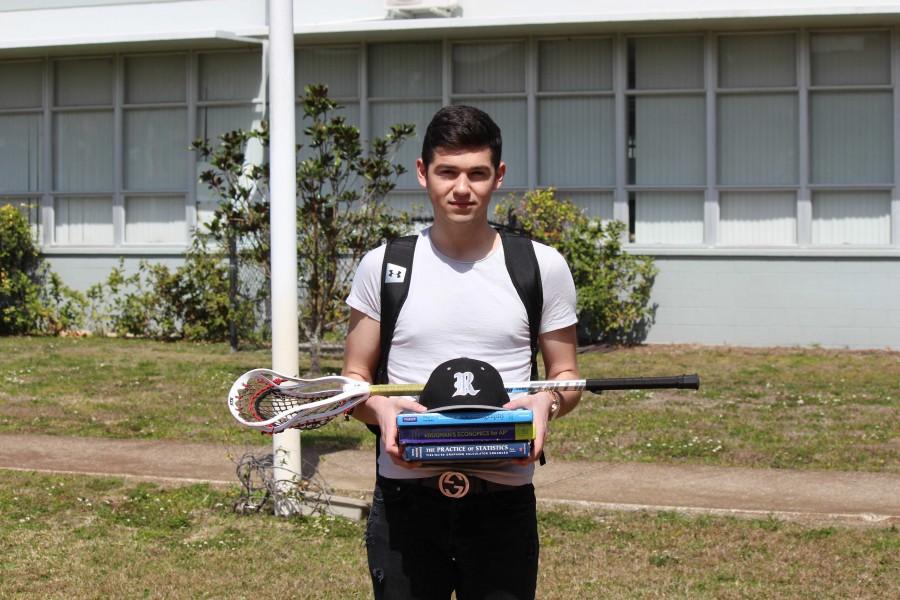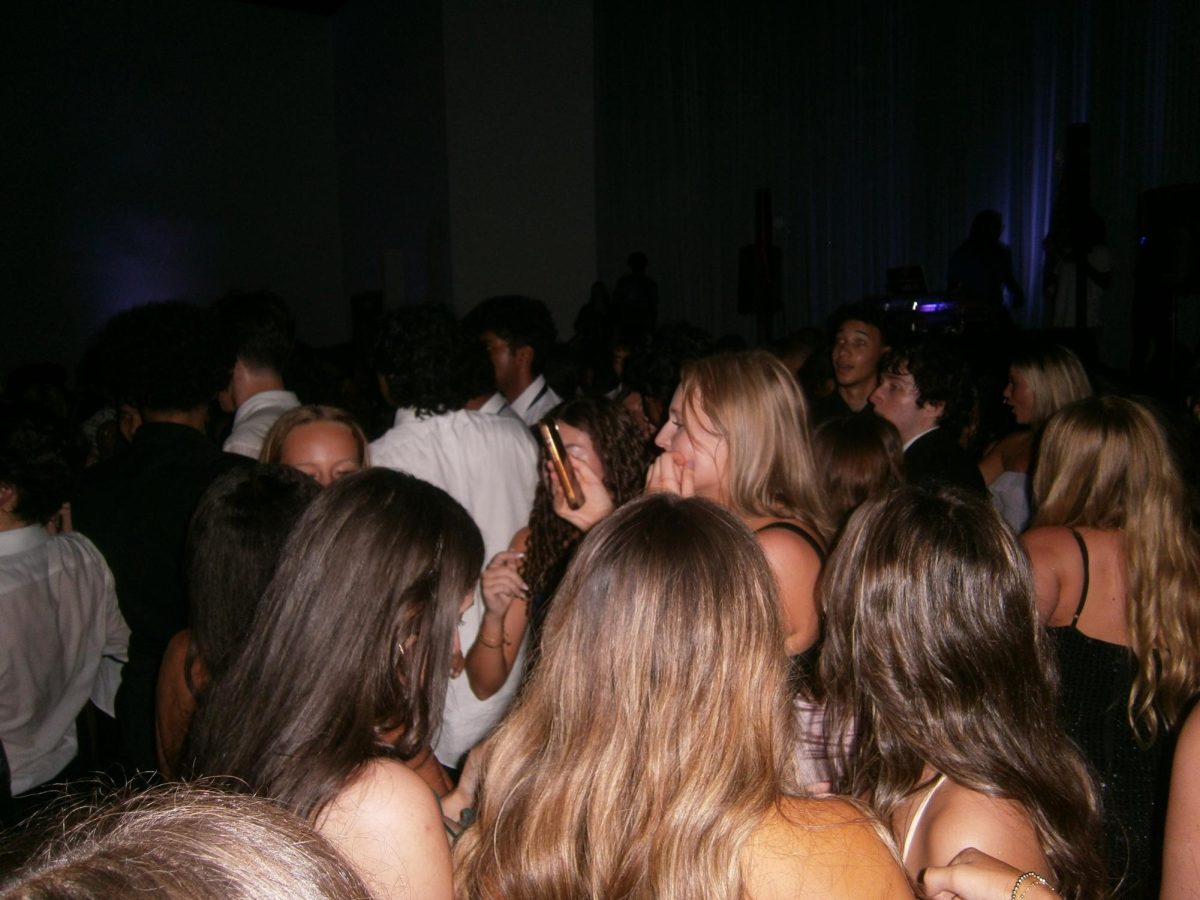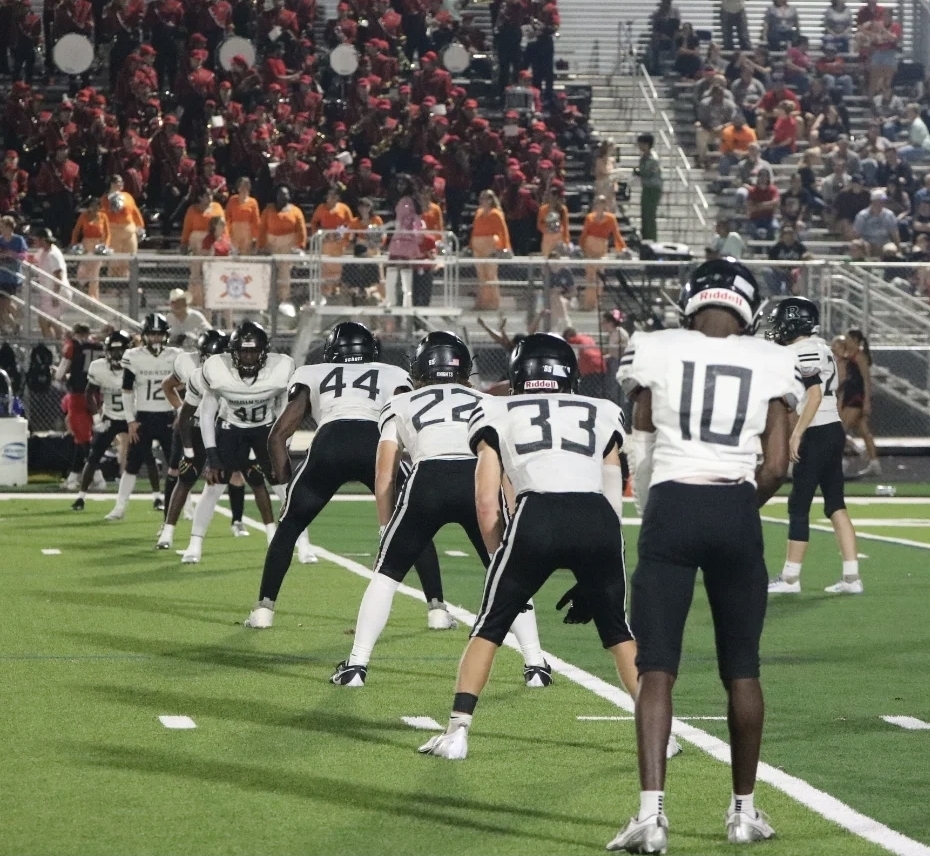Weekly Vexation: Balancing School and, Well, Everything Else
A Robinson senior attempts to manage school, and multiple sports along with the stressful college application process.
March 11, 2016
High school is tough. Whether it’s IB, AP, honors classes, sports, clubs, volunteering, work, religious organizations, SATs, ACTs, you name it, high schoolers are worrying about it. Why is it that we put a tremendous amount of pressure and responsibility on kids? High school seniors are deciding what college they want to go to and ultimately their college majors and career paths, so if anyone ever tells you that high school was the best time of their life, ask them why?
Although some argue that parents are more lenient nowadays and that many do not care or concern themselves with their child’s grades, many students would not be advanced classes if they didn’t concern themselves with their grades.
“I went to a college prep school so there was a lot of pressure put on me to do well, and if I was doing poorly, it was my responsibility,” Chemistry teacher James Atkins said. “But some kids in my neighborhood really didn’t care about school. Nowadays I feel like if a student is doing bad, the blame is put elsewhere, on the teacher or the style of teaching, not on the student themselves.”
But it hasn’t always been this way. Parents don’t understand the pressure their kids are facing, because they simply didn’t have as much pressure when they were kids. With the United States’ rapidly increasing population, competition in the workforce is as high as ever. With the typical goal in mind of having a well-paying job, being able to support your family, and even having money for retirement, how you perform in high school is a large determinant of your future. Some may categorize this mindset as “catastrophizing” (the idea of “if I don’t do well in middle school, I won’t get into a good high school, and I won’t get into a good college, and I wont get a good job and I’ll be homeless”). Although this mindset may seem unreasonable, many teens suffer with this stress and anxiety.
And the stress gets even worse as you get older. In fact, many upperclassmen argue that freshman year’s workload is seemingly minuscule compared to the amount of work they have. For IB students, late junior year and early senior year is the work time for their Extended Essays, only adding onto the already overflowing plate that they have. Not to mention that senior year is college application year, where teens have to make a decision that will likely impact the rest of their life.
“It really depends on your family,” Annika Holmstrom (’19) said on how grades are emphasized in her household. “My parents are pretty relaxed and just want me to do my best, but I put a lot of the pressure on myself and feel self-motivated. I am scared for junior year; I’m already feeling how rigorous the [IB] program is and I don’t even have to worry about IAs and my EE.”
“All of my classes revolve around the IB curriculum which is in essentially a standardized test, although it is world-recognized,” Veneta Dinova (’16) explains. “They also double as AP classes which prepare me for the AP tests, so overall, my entire IB career is focused on me doing well on tests.”
Every student has a different perspective on how the weight of high school is pushing on them, but that weight shouldn’t be as heavy as it is to begin with.











